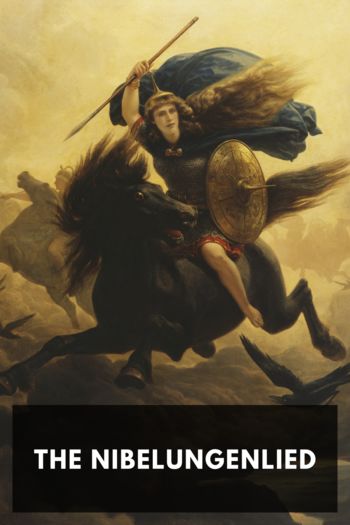The Trials of Radclyffe Hall, Diana Souhami [best sales books of all time .TXT] 📗

- Author: Diana Souhami
Book online «The Trials of Radclyffe Hall, Diana Souhami [best sales books of all time .TXT] 📗». Author Diana Souhami
Evguenia met them at the Gare du Nord. They all stayed at the Hotel Lutétia in boulevard Raspail. John gave her presents of satin trousers, stockings, pyjamas, a beret, scissors in a red leather case, an ivory hand mirror. They had supper à trois then Una went to bed with chest pains and breathlessness. ‘I am perpetually anxious these days and with good cause. I live in a state of fear of what more will have to be met and suffered. This girl is being brought right into our lives, daily and hourly, so our old and treasured companionship, à deux, hardly seems to exist.’
She hoped that the more John saw of Evguenia the sooner she would tire of her. She scrutinized Evguenia to find fault: she was dull, childish with no looks, no brain, ‘madly in love with John as is only natural’. She found John’s ‘doting infatuation’ intolerable, the way her eyes followed Chinkie Pig about, the way she registered her every word and action: ‘the devotion that for twenty years was all mine, overflowing for someone else, and a woman years my junior who has never been to John all that I have been. It hurts and hurts and is never for one waking moment out of my mind and heart.’
John promised not to leave Una alone all day and night. They would see friends together. But promises were glancing words. Natalie rang, wanting to see them. Una told her John was testing a secretary. She visited alone. Nadine Wang, Natalie’s cook, chauffeur, secretary and lover was there. She had been a colonel in the Chinese army. Romaine was in America and Natalie planned to join her. Dolly Wilde called in, ‘haggard and much aged by her career of dope’. John and Evguenia joined them all for supper. Evguenia was explained as a friend in need of help. A trois they went to a party of Natalie’s, to the ballet Spectre de la Rose, to dinner at Antoine’s with Sergei Lifar, to a Russian gala of Rimsky-Korsakov’s music.
John spent mornings with Una. She fussed about her heart and how emaciated she looked, told her not to go out in the cold, and to eat soup. ‘I don’t want only to be of interest when I am ill’, Una wrote. ‘which I sometimes feel is the case.’ She wished she had died in 1932 after her hysterectomy with the peaceful conviction that love was intact. John phoned her from Evguenia’s flat and sent plants and flowers to the hotel. They were tokens of guilt. When with Una she longed for Chinkie Pig.
Her mind never seems to leave the girl for a moment. It is Russia, the Russians, the Soviet, the old Russia, Russian music, Russian art, Soulina, her looks, her clothes, her voice, her opinions, her naturalisation, her past, her present, her future, all roads lead back to the same name and face. If we look in shop windows, what would suit her, if we go out anywhere, would she have liked it, and what a pity she was not asked. When she went today, I just frankly had my cry out.
Una heard a thud from the hotel wardrobe and thought it must be Ladye sympathizing. She then had her soup, corrected proofs and walked the Paris streets.
Una had always lived vicariously through John. Now she lived vicariously through John’s relationship with Evguenia. At sessions with Mrs Leonard she had suffered the intensity of John’s relationship with Mabel Batten. Now she suffered the intensity of her relationship with Evguenia. Alone together neither talked of anything else. Behind the humiliating of Una, itself a strange projection, was a test of strength, a battle for control. John had never spent a day or night alone. Her personality was precarious. She needed Una’s validation for everything she did. Una had not served Mabel Batten, she had usurped her. She intended to do the same with Evguenia, however long it took.
John told Una that she would not leave her, that she wished to be with her yet not with her, that her own pleasure was marred by Una’s unhappiness. Una told John that she loved her entirely, faithfully, exclusively, that in all the world nothing and nobody counted except for her. ‘But how can I not suffer and be unhappy when after all these years of perfect union she imports a third and dotes upon her?’
Una was not going to leave or be left. She was not going to relinquish the money and lifestyle that were hers. She called herself the fixed star. However ghastly life had become, ‘everything else shrivels away in comparison to fear of separation’. John said to her, ‘the girl has me physically absolutely’. Una translated this as an attraction that would pass.
Often she accompanied John to Evguenia’s door. ‘It always seems all wrong, a sort of illusion when I walk or drive away leaving her with someone else and every time it makes me unhappy afresh.’ She went to the British Consul to obtain an annual visa that permitted Evguenia to visit Britain as often as she wished for a month at a time. ‘So there is another obstacle removed by me.’ She walked back to the hotel with a constricted chest, ‘as if there was a string round it’. She went with John to a solicitor Georges Hollander at 41 rue Condorcet to try to arrange Evguenia’s French naturalization. She helped choose a black brindle bulldog called Boulinka as a present for her. It had distemper and was sick on Evguenia’s bed.
What was planned as a stay of ten days in Paris extended to two months. John talked





Comments (0)